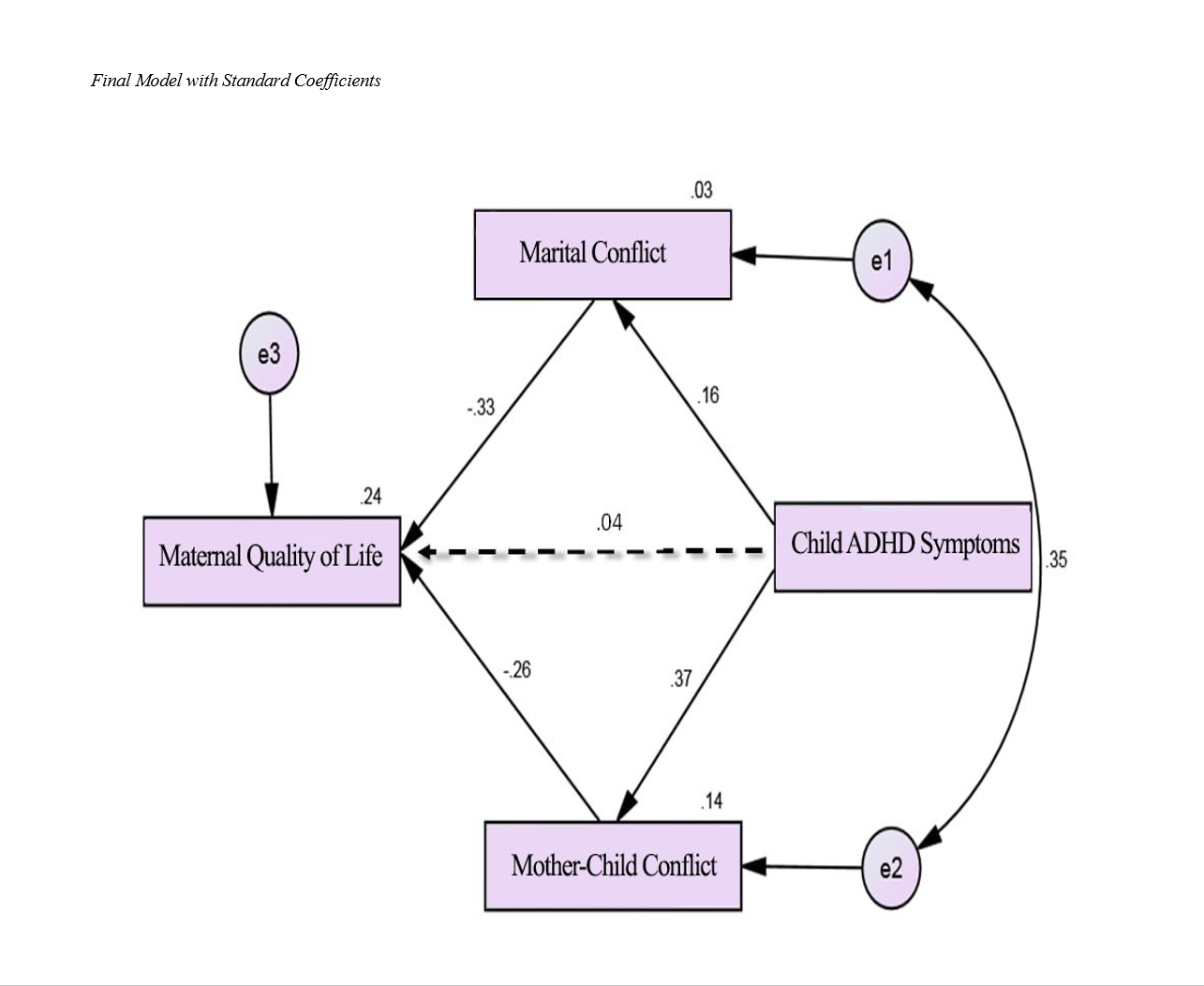The Relationship between Child ADHD Symptoms and Maternal Quality of Life with the Mediating Role of Marital Conflict and Mother-Child Conflict
Keywords:
ADHD, marital conflict, mother-child conflict, quality of lifeAbstract
Objective: This study aims to investigate the relationship between child ADHD symptoms and maternal quality of life, considering the mediating roles of marital conflict and mother-child conflict.
Methods: The research method is descriptive and correlational. The statistical population consists of all mothers of elementary school children in Rasht city during the 2019-2020 academic year. Using convenience sampling, 160 mothers were selected. The World Health Organization Quality of Life – Short Form (1996), the Child Symptom Inventory (Parent Form) by Sprafkin, Lani, and Gadow (1994), the Marital Conflict Questionnaire by Barati and Sanaei (2000), and the Pianta Parent-Child Relationship Scale (1994) were utilized. Data were analyzed using structural equation modeling.
Findings: The results indicated that child ADHD symptoms alone do not have a significant relationship with maternal quality of life (P > 0.05). However, marital conflict has a significant negative relationship with quality of life (P < 0.05), and mother-child conflict also has a significant negative relationship with quality of life (P < 0.05). Furthermore, marital conflict and mother-child conflict mediate the relationship between child ADHD symptoms and maternal quality of life (P < 0.001).
Conclusion: The findings suggest that the presence of child ADHD symptoms, when combined with the mediating factors of marital conflict and mother-child conflict, negatively impacts maternal quality of life. Additionally, both marital conflict and mother-child conflict directly negatively affect maternal quality of life.
Downloads

Downloads
Additional Files
Published
Issue
Section
License

This work is licensed under a Creative Commons Attribution-NonCommercial 4.0 International License.
















